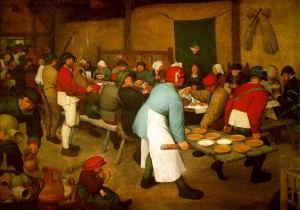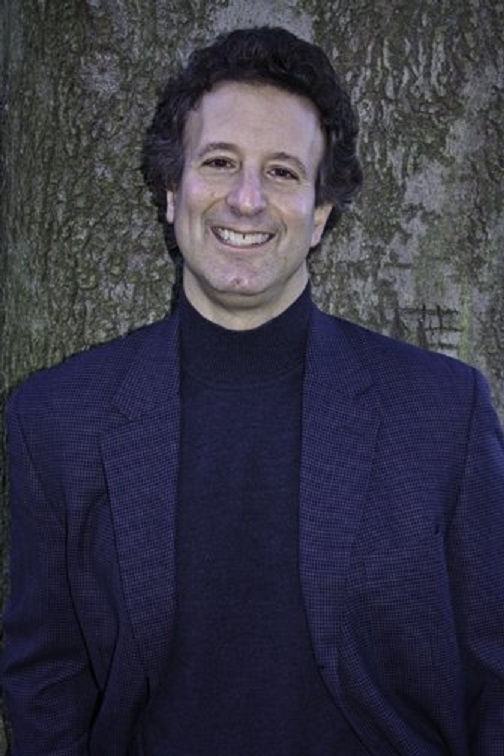Over the years, I’ve interviewed many well-known authors, and we’ve discussed their writing careers as well as some aspects of their personal lives. One question I sometimes ask has been “food for thought” for many writers, and their answers often reveal much about them. Readers of my blog seem to especially enjoy this query, and the responses it engenders:
Here’s the question: You’re hosting a dinner party and can invite any five people, living or dead, real or fictional, from any walk of life. Who would they be?
Here are responses from some well-known novelists:
Alex Kava: I would start by inviting Harper Lee because To Kill a Mockingbird is my favorite book. It would be amazing to be able to talk with her. Then, I’d invite Alfred Hitchcock because I love using the Hitchcockian approach to suspense thrillers—bringing the readers to the edge and leaving them there. My next guest would be Scout Finch. Can you imagine Scout contradicting some of the stories as Harper Lee would be trying to tell them? Amelia Earhart is fascinating, so I’d invite her. And the fifth would be Jack London, a real ‘dog person,’ because I just loved Call of the Wild.
Michael Connelly: An obvious one would be Raymond Chandler. The other one is easy: my father passed away before I was published and had any success, so I’d like to have a meal with him now. I was very close to a cousin who passed away when we were twelve. I’d like to catch up with her. And maybe I’d like to meet the real Hieronymus Bosch. But, he might throw soup at me for taking his name.
Daniel Silva: Churchill would be there. I’d invite George Orwell who might be coughing and wheezing and not feeling well but I’d love to talk to him. It would be fun to have FDR along with Churchill—to have the two leaders who saved the world sitting at the same table. How about inviting the acerbic Graham Greene? And then, I’d love to have Hemingway join us. Can you imagine the amount of drinking going on with Churchill and Hemingway there? [Laughter]. I’d watch the whole evening explode.
Laura Lippman: I’d invite Stephen Sondheim. I’d love to have Ferran Adrià, the chef from el Bulli, a seminal figure in the world of cooking. My husband would be there because I love him, and he’s great company. I would also invite a friend who’s the most provocative, no-holds-barred person I know, Rebecca Chance; and I’d love to invite Michelle Obama. I wouldn’t invite any dead people because I’d have to spend so much time bringing them up to speed on stuff. Imagine saying to Shakespeare, ‘The other day, I Googled someone…’ and he would look at me like I’m insane [Laugher].
Reed Farrel Coleman: I’d invite Moses, Jesus of Nazareth, Marilyn Monroe, T. S. Eliot, even though he’d hate being with so many Jews. [Laughter]. And then I’d invite my grandfather. He apparently loved me, but I don’t remember him. He died when I was very young.
Tess Gerritsen: I would ask Cleopatra. She’s a fascinating character who could purportedly twist men around with her intellect. I’d also invite Margaret Meade. And then, I’d ask Amelia Earhart. I’m really interested in accomplished and interesting women. [Laughter]. The funny thing is I don’t find writers all that interesting. We writers live in such a world of imagination, we’re too busy to go out and do things ourselves. I’m most interested in people who’ve done things. I would also like to have the young King Tut at the dinner. And last, but certainly not least, I’d invite Genghis Khan.
Robert Crais: I’d probably invite a couple of painters. There would also be a couple of architects. Painters and architects fascinate me. I think we all do the same thing: it’s just that their mediums are different. Their brains work in a different way and I’m fascinated by that. I’d also invite someone like Ray Bradbury or Robert Heinlein, science fiction writers. They would see the world very differently than I do.
Karen Slaughter: I’d invite Flannery O’Connor. Then, I’d have Margaret Mitchell and Truman Capote, two Southern writers. I’d invite Bill and Hillary Clinton because they could get any one of those other guests to talk and be interesting, even if some of them had a little too much to drink or if they were typically shy writers. I’ve met both Clintons. Bill has an amazing mind, and Hillary really has it together. It’s incredibly impressive when you’re a woman and meet another woman with so much to offer.
Robin Cook: I’d invite David McCullough, a wonderful historian, writer and conversationalist. I’d invite Simon the Magician—the bad boy in the Bible. From St. Peter, he tried to buy the ability to cure. I would have to invite Jesus of Nazareth. If one wants to believe the stories in the New Testament, he was the most amazing healer of all. I’d invite Upton Sinclair whose book, The Jungle, changed something really bad—certain public policy. And, I’d invite FDR. He probably had the best chance of all presidents to get us a rational national health policy.
Catherine Coulter: Georgette Heyer, a British author who died in 1972. She’s the one who invented a sub-genre called the Regency romance. Then, I’d love to have Agatha Christie for dinner. I would love to have dinner with Charles II. And I’d want to meet the modern Plato—the same philosopher, but brought into contemporary times. And then, maybe Edward I. He’s very much alive in my books—he’s a character for me—and I’d just love to ask him questions about how he deals with my other characters. He lives on in my own private little realm of ideas.
David Morrell: Thomas De Quincey would be high on my list as would Benjamin Franklin. My mentors, Philip Young and the screenwriter Stirling Siliphant who wrote Route 66 would be there, too. If we’re talking about the great minds, I think St. Thomas Aquinas would be at the table.
Patricia Cornwell: I’d love to have dinner with Dickens. And with Agatha Christie. I’d love to have met Lincoln. I’m so sorry I never got to meet Truman Capote. I think In Cold Blood is one of the greatest true-crime books ever written. I think dead people might be my specialty [Laughter]. And then there’s Harriet Beecher Stowe because she and I write basically about the same thing: abuse of power, whether it’s slavery or anything else.
Harlan Coben: Well, I’d love to have my parents with me. If I chose writers, I’d invite those I’ve known personally, who have passed away: David Foster Wallace, Elmore Leonard, Donald Westlake, and Ed McBain. They were writers whose work I admired greatly, and whom I personally admired enormously.
James Rollins: I would love to sit down with Michael Creighton. When I wrote Subterranean, the book right above me on the shelf was Jurassic Park. I had no formal training in writing, so I used Jurassic Park as a template. I’d love to meet Howard Carter, the archeologist who discovered the tomb of Tutankhamun. Mark Twain would make for some very entertaining conversation. It’s a poorly kept secret that I have written fantasy novels under the pen name of James Clemens. Plato or Socrates would round things out and we’d have a great mix of people.
Let me ask you, the reader, the same question: whom would you invite to dinner. I’d love to read and share your responses.






 Jon Land is the prolific author of more than thirty-five books. His thriller novels include the Caitlin Strong series about a fifth-generation Texas Ranger, and the Ben Kamal and Danielle Barnea books about a Palestinian detective and an Israeli chief inspector of police. He has also penned the Blaine McCracken series, standalone novels, and non-fiction. Jon was a screenwriter for the 2005 film Dirty Deeds. He is very active in the International Thriller Writers Organization.
Jon Land is the prolific author of more than thirty-five books. His thriller novels include the Caitlin Strong series about a fifth-generation Texas Ranger, and the Ben Kamal and Danielle Barnea books about a Palestinian detective and an Israeli chief inspector of police. He has also penned the Blaine McCracken series, standalone novels, and non-fiction. Jon was a screenwriter for the 2005 film Dirty Deeds. He is very active in the International Thriller Writers Organization. As David Mamet
As David Mamet